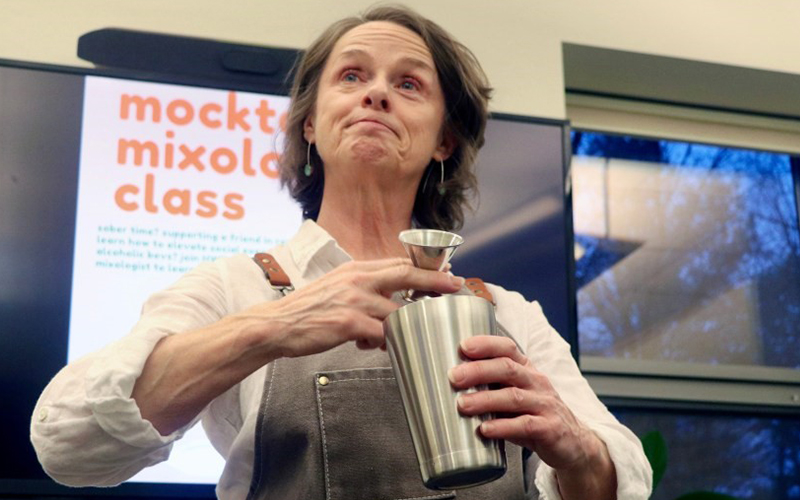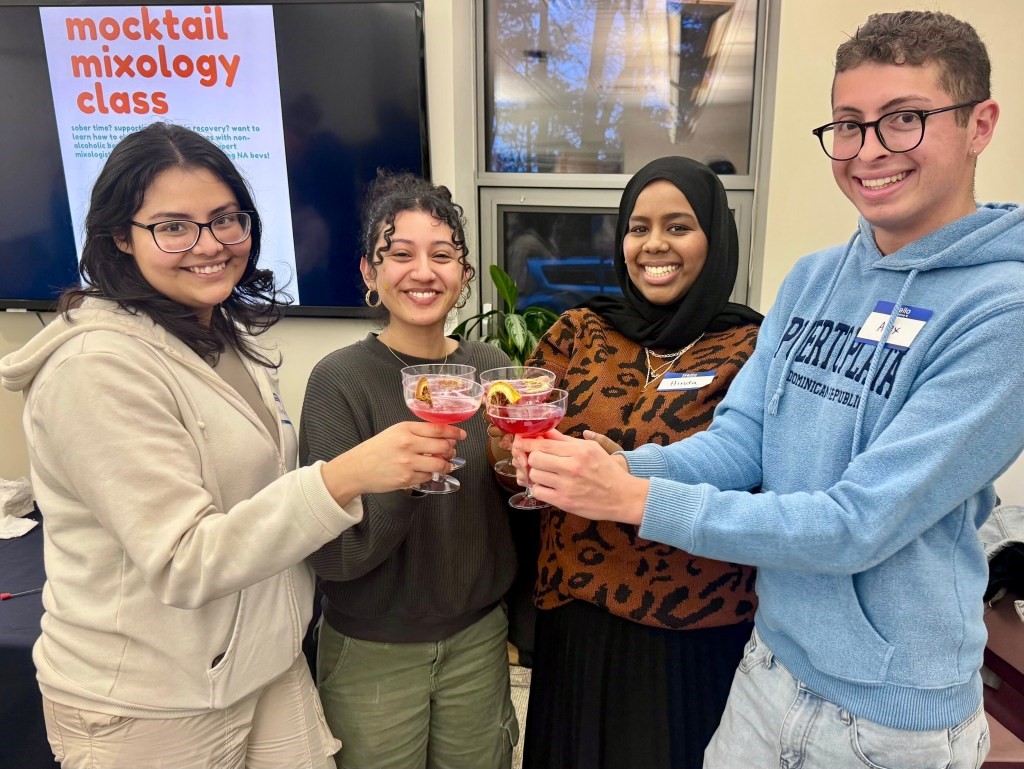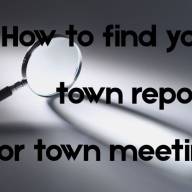By Myla van Lynde, Community News Service
In places like bars, corporate events, college campuses and restaurants, alcohol is everywhere. And it can be hard for those who don’t drink – or even those who want to drink less – to socialize in spaces where alcohol is expected. But some Vermonters want to change that.
Lisa Danforth founded tonique, a mobile alcohol-free bar service, two years ago.
“Our mission is to help build sober-inclusive campus and workplace cultures,” Danforth said.
At corporate events, Danforth sets up a nonalcoholic bar alongside an alcohol bar.

“I can’t tell you how many times people have said to me, ‘Thank you for being here. We actually feel seen. We actually feel like the event coordinators thought of us,’” she said.
Danforth also teaches alcohol-free mixology classes. And when customers are skeptical about nonalcoholic cocktails, she encourages them to try a drink anyway.

“Almost always, I would say 99.9% of the time, people have come back for a second cocktail,” Danforth said. “So that is shifting our culture, that’s shifting our relationship, our mindset toward alcohol.”
Aaron Wisniewski owns Alice and the Magician, a flavor design studio that makes beverages. One of the products he’s designed is Guinep, a nonalcoholic cocktail made with minerals from the ocean floor. Wisniewski launched Guinep in 2023.
“Year one, 90% of people, when we were like, ‘It’s a nonalcoholic cocktail made with ocean minerals,’ people would either stare blankly at us, or kind of laugh it off nervously, like, ‘Why would anyone want an alcohol-free cocktail?’ And now, everybody has just kind of swiftly adopted the idea that there are nonalcoholic drinks out there, and that’s just part of the experience,” Wisniewski said.
Today Guinep can be found in over 120 restaurants and grocery stores across Vermont.
Anna Hand, a health educator at Middlebury College, works with students on harm reduction strategies. To her, harm reduction looks like helping students think through their relationship with alcohol without demonizing or forbidding it.
Hand encourages everyone, not just students, to be leaders in well-informed conversations about alcohol use.
“There are resources out there that can help guide that conversation in a shame free, accurate way,” she said.
Jakee Zaccor stopped drinking alcohol a little over nine years ago. As a self-described “New York party girl,” she found that not drinking limited where and how she could be with people.
“I didn’t go out to bars for a couple of years because I was like, ‘These aren’t for me,'” Zaccor said. “But then I’m not gathering with people. I’m not sitting with people. I’m not talking with people.”
Zaccor found a new community in New York’s “sober dance party” scene. Inspired by these parties, when she moved to Burlington, she began to host alcohol-free gatherings under the name SHAKE.
“I was surprised at a larger swath of people who were not in recovery, but who were really curious about spaces that were alcohol- and substance-free,” she said.
This coming June, SHAKE is back. In Zaccor’s wildest dreams, a few hundred people will come together to dance.
“The last couple of years I’ve been really absorbing what Burlington needs,” she said. “So, I was like, ‘OK what do we need? We need a party.'”
This newest iteration of SHAKE will feature local DJs, businesses, and yoga teachers. Zaccor wants to create a space of collective joy – a space that isn’t centered around alcohol-consumption as an activity.













